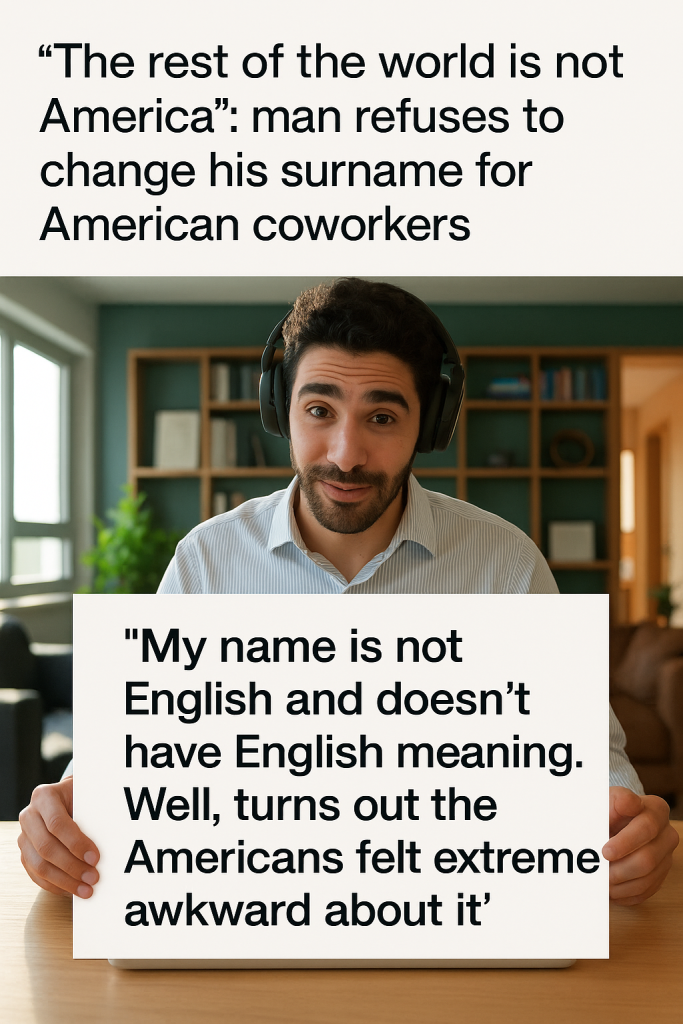In a bold statement against cultural conformity, a man working in the United States has made headlines for refusing to anglicize his non-English surname to accommodate his American coworkers. His stance has reignited conversations about identity, cultural respect, and the pressures immigrants face in adapting to workplace norms.
The man, originally from a non-English speaking country, shared that his surname carries deep personal and familial significance, and he sees no reason to alter it just because it is unfamiliar or difficult to pronounce for some American colleagues. His refusal sparked a wave of mixed reactions online, with many applauding his commitment to preserving his cultural identity and others debating the expectations placed on immigrants in a multicultural society.
“My name is not English and doesn’t have English roots,” he explained in a recent social media post, which quickly gathered attention. “The rest of the world is not America, and I should not have to make my name easier just because it sounds foreign to some.”
In workplaces across America, it’s unfortunately common for employees from diverse backgrounds to feel pressured to modify their names for ease of pronunciation or to fit in better. This practice often reflects underlying cultural insensitivities, and experts say it can affect an individual’s sense of belonging and self-worth.
According to workplace diversity advocates, encouraging employees to keep their authentic names not only fosters inclusivity but also enriches the organizational culture. They argue that respect for names is a small but significant step toward embracing diversity and dismantling systemic biases.
This incident also highlights a broader cultural conversation taking place in the United States about the balance between assimilation and multiculturalism. While many immigrants work diligently to integrate into American society, there is growing recognition that inclusion means accepting differences, not erasing them.
Some coworkers initially found the surname challenging to pronounce, but after the man’s public stand, several of them expressed willingness to learn and correctly pronounce his name, acknowledging their own unfamiliarity rather than expecting him to simplify his identity.
The conversation continues to evolve on social media, with users sharing personal stories of name changes they were encouraged or forced to make in their professional or personal lives. Many emphasize that names hold key stories of heritage, family legacy, and individual identity that should be honored.
Ultimately, this refusal to anglicize a surname serves as a reminder of the importance of cultural sensitivity in today’s diverse workplaces and communities. It challenges the notion that American norms are universal and encourages a more inclusive perspective where people can proudly represent their backgrounds without compromise.



